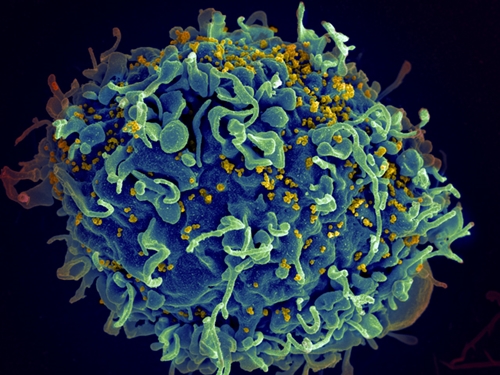5 June 2015. The U.S. Food and Drug Administration approved an application for a current HIV drug formulated to better treat infections in infants and young children, especially in limited resource regions. The formulation is a combination of lopinavir and ritonavir in pellet form designed to mix with food, and manufactured by the generic drug company Cipla in Mumbai, India.
The combination of lopinavir and ritonavir acts as a protease inhibitor to block enzymes that encourage division and replication of the human immunodeficiency virus in the body’s T cells, the white blood cells protecting against infection. The drug is made commercially by AbbVie and marketed under the brand name Kaletra. Protease inhibitors are usually prescribed for use with other HIV drugs,such as antiretrovirals.
While Kaletra is approved for children as young as 14 days old, it is not considered suitable for children under the age of 3. According to the organization Drugs for Neglected Diseases Initiative that supported development of the new formulation, the only children’s alternative to Kaletra is a bitter-tasting syrup containing 40 percent alcohol. In December 2014, AbbVie and Medicines Patent Pool negotiated a licensing agreement that allows for production of generic versions of Kaletra for young children.
The Cipla version of the drug is produced in soluble pellets contained in a capsule that when opened, allows for the pellets to be sprinkled on and mixed with children’s food. The drug is still prescribed in combination with other drugs, and recommended for children weighing 5 kilograms (11 pounds) or more, who can eat semi-solid food.
FDA granted interim approval of the drug under the President’s Emergency Plan for AIDS Relief or PEPFAR. Since Kaletra is patented by AbbVie, FDA’s interim approval extends until the end of AbbVie’s patent and exclusivity protection, but provides for a process to request final approval when the patent and exclusivity periods expire.
Marc Lallemant, director of pediatric HIV programs at Drugs for Neglected Diseases Initiative says in an organization statement that first batches of the pellets should begin shipping in a few weeks to Kenya, “and our partners on the ground will quickly introduce them along with other needed [antiretrovirals] so that children can benefit immediately.” The group says the next stage is development of a drug combining lopinavir and ritonavir with antiretrovirals into a single fixed-dose HIV medication for children.
Read more:
- GSK, UNC Chapel Hill Partner on HIV/AIDS Cure
- Early Trial Shows Gene Editing Potential to Treat HIV/AIDS
- Cancer Drugs Shown With Potential Against HIV-Related Fungus
- Community Pharmacies Found Helpful in Encouraging HIV Tests
- Algorithm Identifies HIV Antibodies For Vaccine Design
* * *


 RSS - Posts
RSS - Posts
You must be logged in to post a comment.